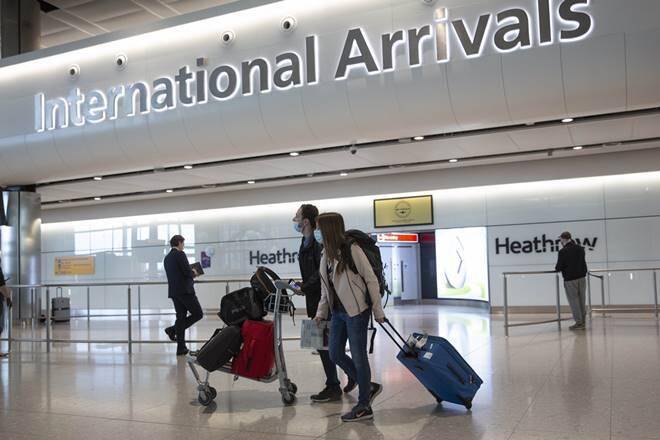Passengers arriving at Mumbai airport from
South Africa, where the new coronavirus variant Omicron was detected, will be
quarantined and, if found positive, their genome sequencing will be done, Mumbai mayor Kishori Pednekar said on Saturday, news agency ANI reported.
The decision for genome sequencing came
after the World Health Organisation (WHO) labelled Omicron a “variant of
concern”. Several nations, including the US and UK, have suspended flights to
and from South Africa and five other African nations to curb the spread of the
strain of the new variant, which is reportedly spreading very fast.
“There are concerns in Mumbai about the
new variant of coronavirus. Genome sequencing of (positive) passengers coming
from South Africa will be done. There is no restriction on outbound flights in
any way. But this decision has been taken keeping in view past
experience,” Mumbai mayor Kishori Pednekar said.
Genome
test for everyone coming from abroad
Considering the rise in fresh cases across
the world, travellers arriving in Mumbai from abroad, irrespective of the
country, will also have to undergo genome testing.
“There is an increased risk of
COVID-19 in other nations, so those coming from abroad will have to undergo
genome test. I request everyone to maintain social distancing and wear masks so
that this new menace can be stopped,” Ms Pednekar said.
PM Modi held review meeting
Meanwhile, Prime Minister Narendra Modi
held a review meeting today morning to take stock of the vaccination situation
in India amid concerns over the new variant of the coronavirus.
The new variant, Omicron, was first
detected in Pretoria, South Africa this week and found in five other African
countries – Botswana, Lesotho, Eswatini, Namibia and Zimbabwe. Outside Africa,
the variant was detected in Hong Kong, Israel, and Belgium among the
travellers.
The new variant of coronavirus is believed
to have 50 mutations, including over 30 on the spike protein and 10 on the
receptor-binding domain.
Researchers are still trying to confirm
whether the new variant of the virus is more transmissible or lethal than
earlier variants and if existing vaccines can protect against the strain.







